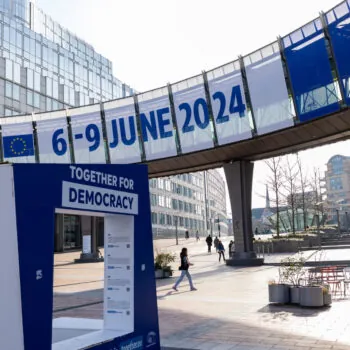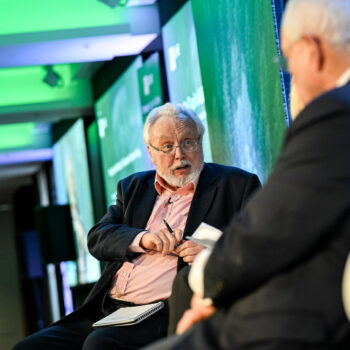By the end of 2024 the EU will have renewed the political leadership of its institutions and laid down a new strategic direction. This new agenda and the people in charge to deliver it will be decided through intense debates fought with placards, ballots, and narratives, with significant impact on the future of the EU’s climate action. We look at five debates and their timeline shaping the outcome throughout the year.
1. Competitiveness
How European competitiveness is defined, understood, and supported, will set the tone for the debate around the green agenda for the coming years. Recent geopolitical developments have shed light on a few challenges. Russia’s war on Ukraine has heightened concerns about security in Europe and the risks of overreliance on a single supplier. In turn it has put in question the EU’s current dependency on China for materials and technologies and led to a broader diversification and reshoring strategy. The green incentives of the Inflation Reduction Act (IRA) have sparked fears of attracting the green industry away from the EU.
Timeline: How to boost European competitiveness will be a central focus of the European Council negotiations on the next strategic agenda (March 21-22 summit, for finalisation at the June 27-28 summit). The ‘Letta report’ on the future of the Single Market (Spring 2024) and the ‘Draghi report’ on the future of EU competitiveness will serve as important input into these discussions. Strengthening competitiveness will also likely be one of the top priorities for the next Commission to be shaped throughout the second half of the year.
2. Investment
Rapidly scaling up investments in the transition is critical for EU cohesion and for delivery of European Green Deal policies. With the reform of fiscal rules constraining public green investment, the EU only agreeing a lacklustre fund for strategic clean tech in response to the US IRA, and funding through the Recovery and Resilience Facility coming to an end in 2026, 2024 will see increasing debates on mobilising public funds and calls for more private investments.
Timeline: The EU’s “investment gap” will feature strongly in political debates between European groups in the run-up to the elections. Negotiations on fiscal rules (reform of the Stability and Growth Pact) are expected to close in February. The Belgian presidency and DG BUDG are planning a high-level conference on the future budget of the EU (rumoured for April 29).
3. EU elections
The European Parliament (EP) is currently predicted to take a “sharp right turn” following this year’s elections. Although the current “grand coalition” (EPP, RENEW, S&D) would still retain the majority of votes, the next European Parliament will likely be supportive of more economic, fiscal, and regulatory freedom for Member States, and more sceptical of “explicit” climate mitigation action.
Timeline: The elections take place on 6-9 June. The results of the elections will have a direct impact on the nominations for the EU top jobs at the June European Council; on the political guidelines presented by the president-designate of the European Commission to the EP and their ability to find a majority; and on the confirmation of the Commissioner-nominees during their autumn EP hearings.
4. Fairness
Inequality is on the rise in the EU. While Europeans overwhelmingly support Europe’s green transition, more than half believe that the energy transition will fragment society by putting some groups at an advantage at the expense of others. Increasingly, far-right populists use fears of inequality and anti-freedom narratives as a tactic to delay climate action and gain more electoral support.
Unaddressed, these concerns risk eroding public support for the transition despite access to renewable energy, heat pumps, and insulation providing protection against rising bills and inflation
Timeline: The Val Duchesse (January 31) and La Hulpe (April 15-16) summits as well as the presidency conference on just transition (March 4-5) will give a boost to social dialogue and the EU’s social agenda at the start of the year. Fairness – of climate action and in Europe – will be a strong focus of the electoral campaigns and first debates of the new European Parliament.
5. The 2040 climate target
European member states will attempt to agree on a new EU climate target for 2040. The negotiations will encompass every single of the debates detailed above, and more – it may trigger early discussions on the future of agriculture, resilience to climate risks, and the risk of a two-speed Europe. This new target will be critical to the global “ambition process” and the EU’s credibility internationally.
Timeline: The Commission will issue its own recommendation on Feb 6. Climate ministers are expected to debate the target level, structure, and broader package during the upcoming ENVI councils and a dedicated ministerial meeting on March 26, with a view of preparing an agreement at the June European Council. Key G7, G20 and UN meetings will both shape European leaders’ willingness to set an ambitious target, as well as the impact the EU will have on other major economies.


